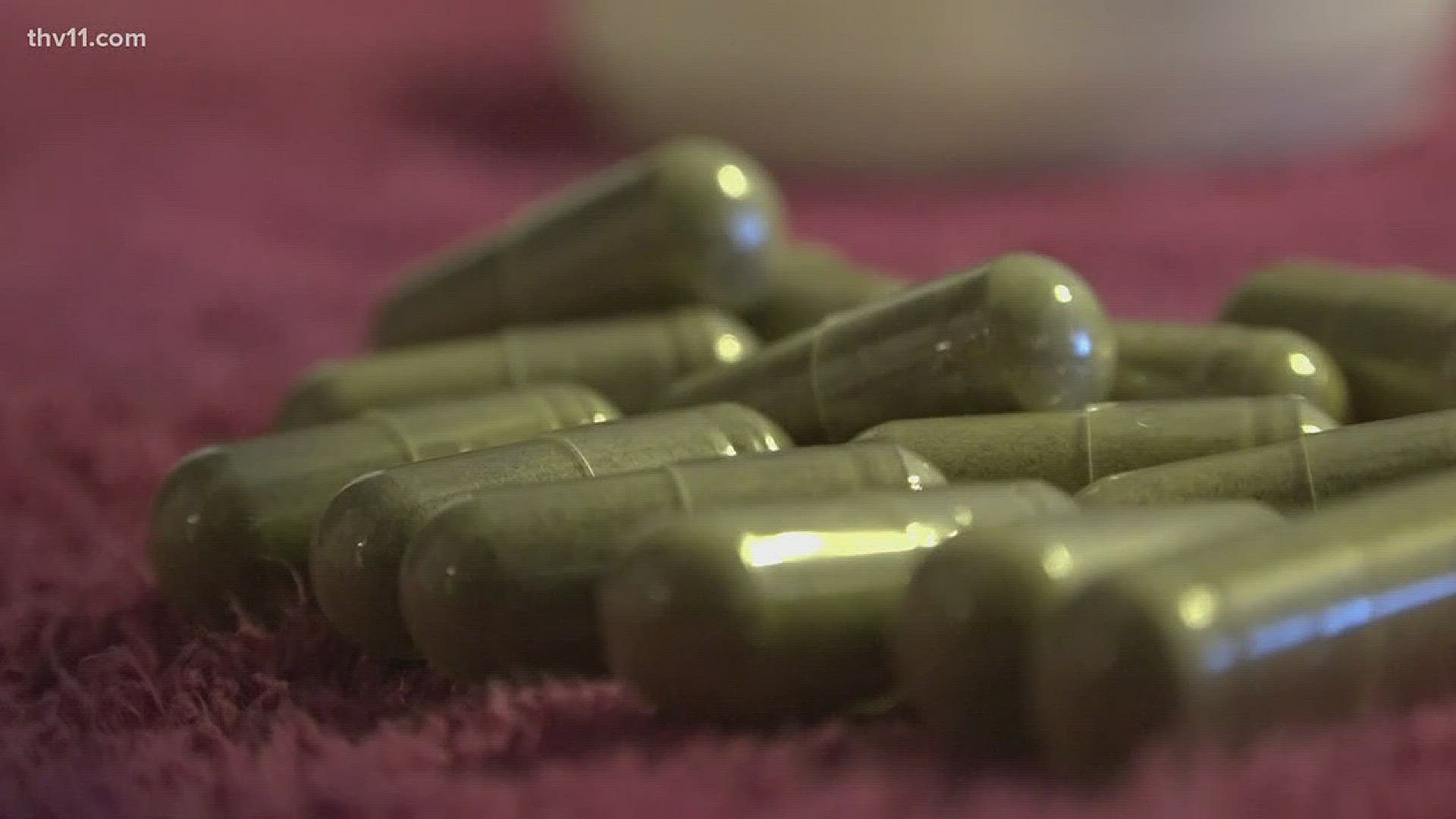As our nation is in the middle of an opioid epidemic, some patients say they found a solution. But it’s something some health professionals are calling a dangerous drug. Just this week, the Food and Drug Administration issued a strong warning on the herbal supplement, kratom. Arkansas was one of the first states to ban it.
"I had a real bad skateboarding injury," said Kevin Anderson who had a dependency on opioids.
Anderson works at Crazy J’s in Conway which used to sell kratom.
“When we started carrying kratom, I wasn't too sure about it until I tried it," Anderson explained.
Crazy J’s owner, J Warren sold kratom to anywhere from 50 to 100 people a day.
“Our customers didn’t buy it because they wanted a mind-altering effect, they didn’t buy it just to be doing it, it wasn’t recreational, they needed it," Warren said.
Kratom is a plant from Southeast Asia. It’s popular for its stimulant effects and as an opioid substitute. It comes in a powder form and can be brewed in a tea, chewed or taken by capsules.
“Once I started taking kratom, I didn’t have any need to go back to opiates and the kratom made me feel better," Anderson said. "Kratom is legal to buy in most states, however in February 2016, Arkansas banned Kratom because of health concerns, adding it to the class of Schedule 1 drugs.
"We were concerned that these were products that were being sold out there without a prescription,” said Dr. Nate Smith, Director of the Arkansas Department of Health.
This week’s FDA warning told consumers to stay away from kratom, adding that they're aware of 36 deaths linked to products containing the plant.
“In the short term, it may feel beneficial but those long term effects of addicting substances tend to catch up with the person," Smith said.
Last year, the Drug Enforcement Administration stopped short of banning kratom altogether, holding off after public outcry.
“That’s an unusual act," said Dr. Keith McCain who works in the pharmacy department at UAMS. “I don’t know that I would lump it into the same ballpark as some of the concerns with fentanyl and newer synthetics we have, but I don’t think it’s completely safe.”
"It wasn’t something I had to depend on. I could take it when I needed to and not take it when I didn’t need," Anderson said.
The FDA claims it should have to go through the same approval process as any drug.
"There’s not data out there to say it’s safe and effective, that we would all agree it’s safe and effective. And there are people out there that would say well ‘show me the data that its really, really harmful,’ and right now we don’t have that either,” McCain said.
The Arkansas State Crime lab has seen kratom pop up in five autopsies in the last three years. It has yet to be the definitive cause of death, but has been part of a multiple drug overdose in four of those five cases.
Following the FDAs warning, The American Kratom Association asked for a correction, claiming kratom isn't a health threat and any deaths associated with it were caused from other health issues.
Anderson hasn't turned back to opioids, but as kratom is in national legal limbo, he's gone to other options.
“I don’t think they realized how many people were truly helped by it," Anderson said.
The FDA is working to prevent shipments of kratom from entering the country.

